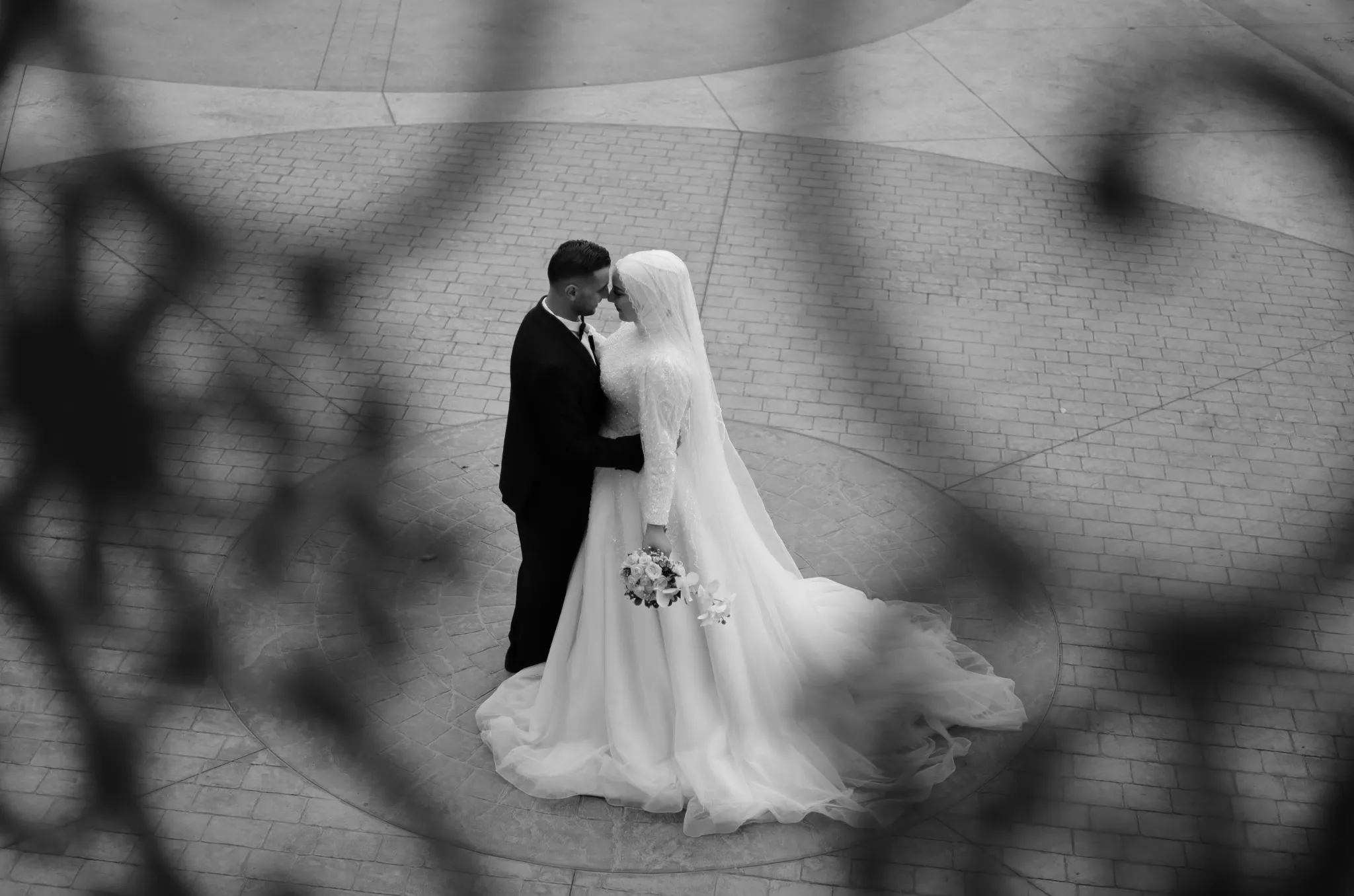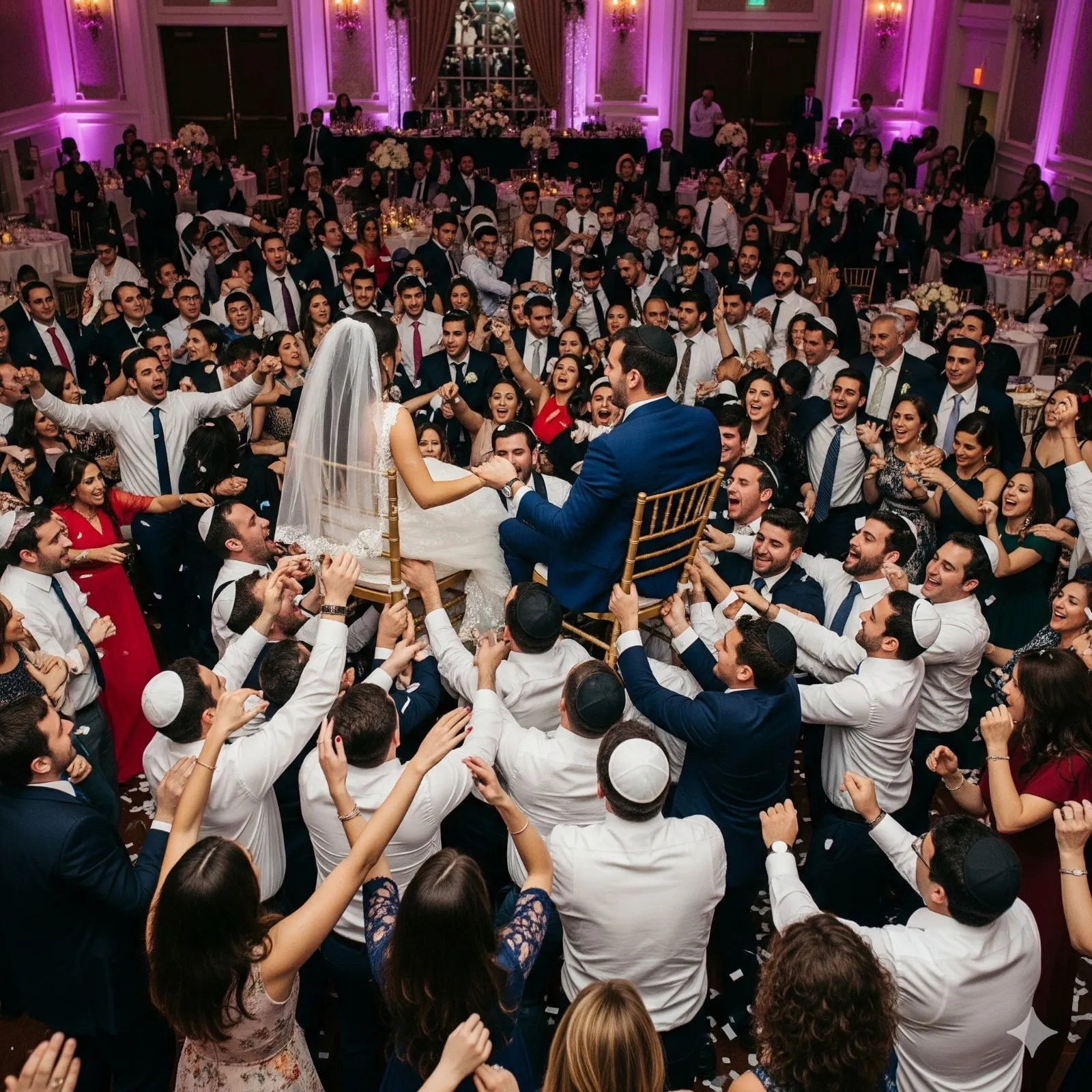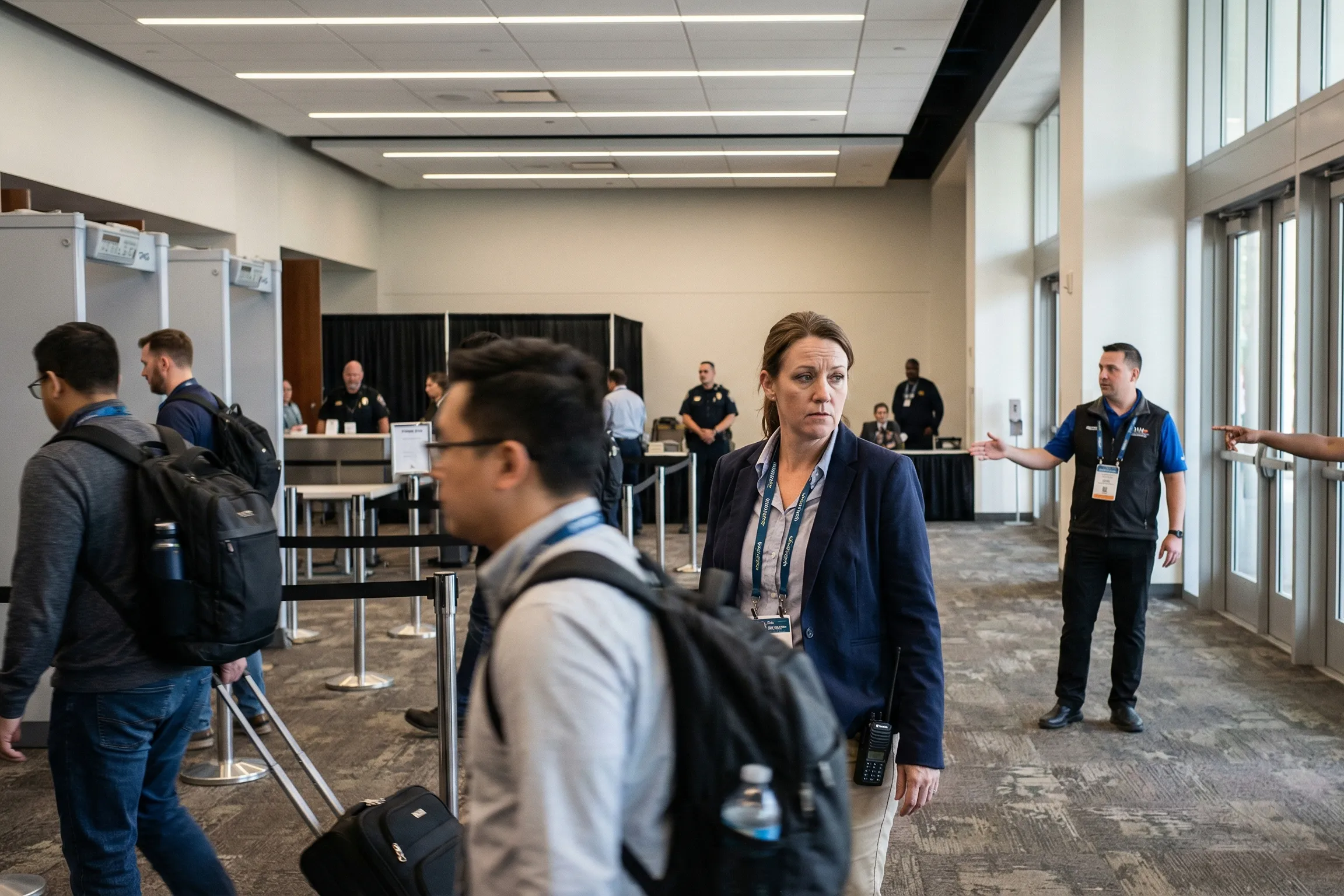You’ve been tasked with planning a large-scale Jewish wedding. It’s an honor, but the complexity is immense, a multi-day celebration rich with traditions where every detail carries deep cultural significance. Planning an event of this significance means you are orchestrating a legacy.
A flawlessly executed Jewish wedding is a profound and joyous experience. However, a single logistical failure doesn't just disrupt a party; it can disrespect cherished traditions, creating a lasting negative impression. The stakes are incredibly high, and the pressure to get every detail right is enormous.
This guide is your complete strategic blueprint. We will walk you through every critical tradition and provide a step-by-step logistical and staffing plan to ensure a seamless, respectful, and unforgettable celebration. By the end, you will have a complete framework to execute a flawless and memorable event.
CEO Excerpt
For a large-scale Jewish wedding, our role is to provide a team that respects the traditions and manages the complex logistics with flawless professionalism, allowing the family to focus purely on the celebration.
Foundational Knowledge (The "What" & "Why")
A large-scale Jewish wedding is a beautiful series of rituals, each rich with meaning and history. For a planner, understanding the "why" behind each tradition is the first step to executing it flawlessly. These are profound moments that require respectful and precise logistical support. For a deeper dive into the cultural context, resources like Chabad.org are invaluable.
A successful event requires moving beyond surface-level understanding. A professional Jewish wedding planner knows how to navigate common misconceptions that can otherwise lead to major planning errors.
Debunking Common Myths for Planners
- Myth #1: "Any caterer can handle it." This is incorrect. Kosher wedding catering has strict dietary laws that require either a dedicated kosher kitchen or a complex process of "kashering" a non-kosher one. It also mandates the presence of a Mashgiach (kosher supervisor), a specialized role that must be budgeted for.
- Myth #2: "The Hora is just a dance." The Hora is a high-energy, celebratory dance, but it's also a high-risk event. Lifting the couple on chairs requires a professional crowd control strategy, a clear space, and sober, designated lifters to ensure guest safety.
- Myth #3: "It's just one long day." A large-scale Jewish wedding is almost always a multi-day affair. The logistics must account for separate events like the Tisch, Bedeken, Ceremony, and Reception, each with its own timeline, guest count, and staffing needs.

The Core Blueprint (A Step-by-Step Logistical and Staffing Plan)
Moving from the "why" of the traditions to the "how" of execution is where a premier Jewish wedding planner truly demonstrates their value. A flawless, large-scale Jewish wedding is built on a foundation of meticulous logistical and staffing plans. This section provides the step-by-step blueprint for navigating the most critical planning pillars.
Step 1: Venue Selection & The Kosher Kitchen Requirement
Before any other detail is considered, the venue's ability to accommodate kosher catering must be confirmed. This is the single most important logistical question and the first one you should ask. A venue must either have its own dedicated kosher kitchen or explicitly permit an outside certified kosher caterer to kasher an existing kitchen, a complex process involving rigorous cleaning and supervision. Many couples find essential guidance on navigating these religious requirements from high-authority sources like The Knot. Failing to confirm this upfront can be a contract-breaking issue, so this must be your top priority.
Step 2: Budgeting for a Multi-Day Celebration
A key role for any Jewish wedding planner is managing a complex, multi-day budget. Unlike a single-day event, costs for the venue, catering, decor, and staffing are often multiplicative over two to three days. It is essential to break down the unique cost drivers that are specific to a large scale Jewish wedding. The Chuppah, for example, is a significant and specialized decor investment, often requiring a professional production team for its construction and design.
Furthermore, specialized staffing roles, such as a Mashgiach (kosher supervisor), are mandatory and must be included in the budget from the start. A detailed understanding of all aspects of your on-site team is crucial for accurately forecasting these major expenses.
Step 3: Designing the Guest Experience
Crafting a seamless and inclusive guest experience is where a Jewish wedding planner's attention to detail shines. For many non-Jewish guests, this may be their first time experiencing these beautiful traditions. Clear communication is therefore essential. This can include elegant printed programs that explain the meaning behind the Ketubah signing, the Chuppah, and the Breaking of the Glass.
Managing the comfort of your guests during a potentially long ceremony is another critical detail. Having discreet staff offer water is a thoughtful touch. These principles of ensuring every guest feels welcomed and informed are central to the tips for guest engagement that define a luxury event.

Step 4: Building Your Professional On-Site Team
Assembling the on-site team for a large-scale Jewish wedding requires building an expert operational unit. Each phase of the celebration requires a different skill set. You need a team that can transition from the quiet reverence of the ceremony to the high-energy celebration of the reception. A professional Jewish wedding planner knows that success depends on having specialists for each key role.
Expert Insight: The Mashgiach's Role
A common misconception is that a Mashgiach is only for the caterer. For a truly kosher event, a Mashgiach must be on-site to supervise all food and beverage service from start to finish, including the bar. This is a critical role that a professional Jewish wedding planner will coordinate to ensure total compliance and peace of mind.
Advanced Tactics & Pro-Tips
Going beyond the basics is what elevates a good wedding to an unforgettable one. These are the "insider secrets" that only a seasoned Jewish wedding planner would know, the nuanced details that ensure an impressive execution. While the context of a wedding is unique, the core principles of strategic staffing are universal, which is why understanding why workforce planning can provide valuable insights for any large-scale event.
- Pro-Tip 1: The Art of the 'Tisch' & 'Bedeken': The pre-ceremony events,the groom's Tisch and the bride's reception,are separate, simultaneous gatherings that require their own dedicated staff. To execute this flawlessly, you need two small, independent teams of hospitality staff. Their job is to manage each room, welcome guests, and serve refreshments. You also need a team of highly trained ushers who are briefed on the precise moment to guide guests from these separate events to the main ceremony for the Bedeken (the veiling of the bride).
- Pro-Tip 2: Mastering the Hora: A skilled Jewish wedding planner always prioritizes safety during the high-energy Hora dance. The best way to manage this is with a dedicated, plainclothes crowd control team. Their sole job is to discreetly create a safe, wide perimeter for the circle dance, manage the designated chair lifters to ensure stability, and prevent collisions. This allows the energy and joy of the dance to remain the focus, while the safety is expertly managed in the background.
- Pro-Tip 3: The Yichud Room: The Yichud, or "seclusion," is a brief period of private time for the couple immediately after the ceremony. This is a sacred and important moment that requires logistical foresight. A planner must arrange for a private room to be secured, pre-stocked with the couple's first meal and drinks, and discreetly guarded by a staff member to ensure they have 10-15 minutes of uninterrupted time.
Avoiding Pitfalls (Common Mistakes to Sidestep)
A great Jewish wedding planner anticipates and prevents problems before they can happen. Here are three of the most common pitfalls to sidestep.
- Mistake 1: Not Confirming the Sacred Fire Permit: The ceremony under the Chuppah requires a small, open flame for the Pheras. It is a disastrous and surprisingly common mistake to assume the venue permits this. A top planner confirms this in writing during the initial venue vetting process to avoid a ceremony-ending issue on the wedding day.
- Mistake 2: Underestimating Catering Complexity: Assuming any high-end caterer can manage a kosher event is a frequent pain point. The strict requirements of kosher wedding catering, including the need for a Mashgiach, are complex and costly and must be planned for with a specialized vendor.
- Mistake 3: Forgetting Guest Communication: Failing to provide clear communication for non-Jewish guests can leave them feeling confused and disconnected from the beautiful traditions they are witnessing. A detailed program or a wedding website that explains the meaning of the rituals is a small detail that makes a massive impact, and it is a key way how hospitality staff elevate the guest experience at events.
Conclusion: The Logical Next Step
As you can see, a successful large-scale Jewish wedding is a beautiful blend of deep cultural reverence and complex logistical execution. You now have a comprehensive blueprint to confidently navigate the process. The right professional team respects the "why" of the traditions while flawlessly managing the "how," ensuring every sacred moment is also a seamless one.
Planning a celebration of this magnitude involves dozens of moving parts. If you want to ensure a flawless and respectful event while you focus on celebrating with your family, our professional event staff are here to help. Get a quote for your wedding staff today.

.webp)



